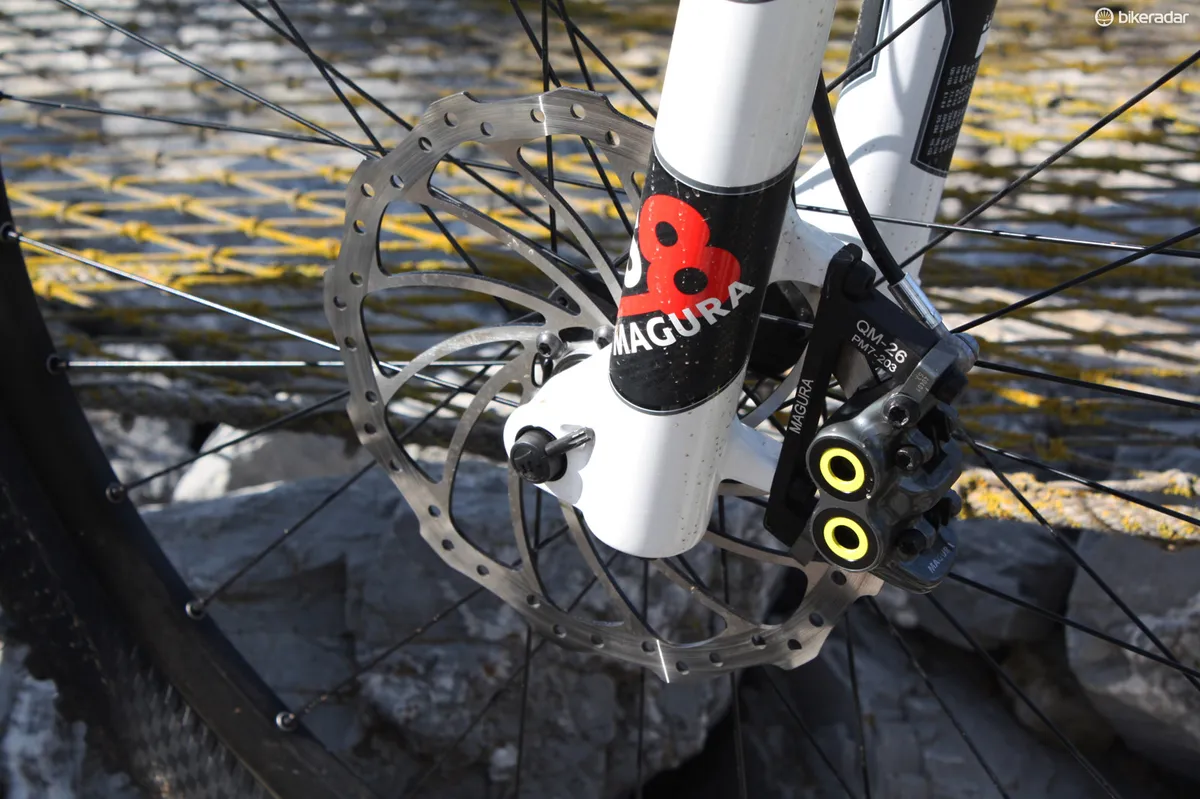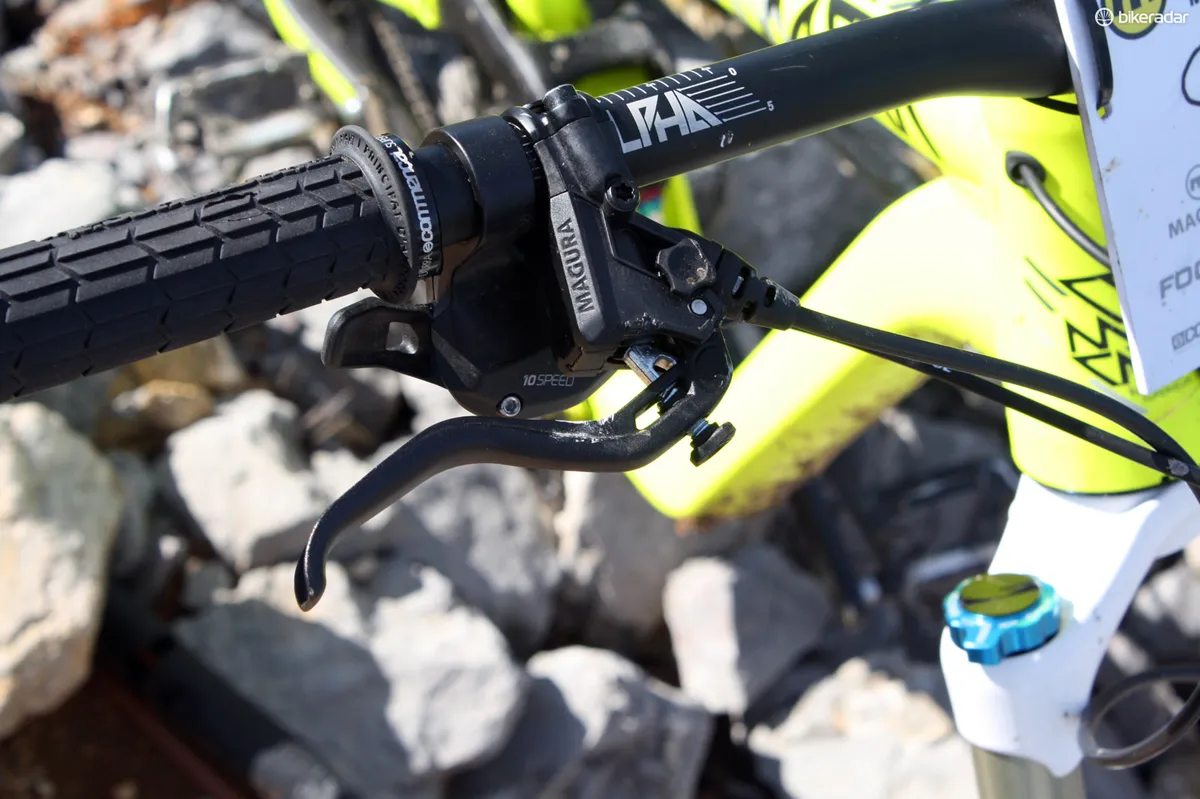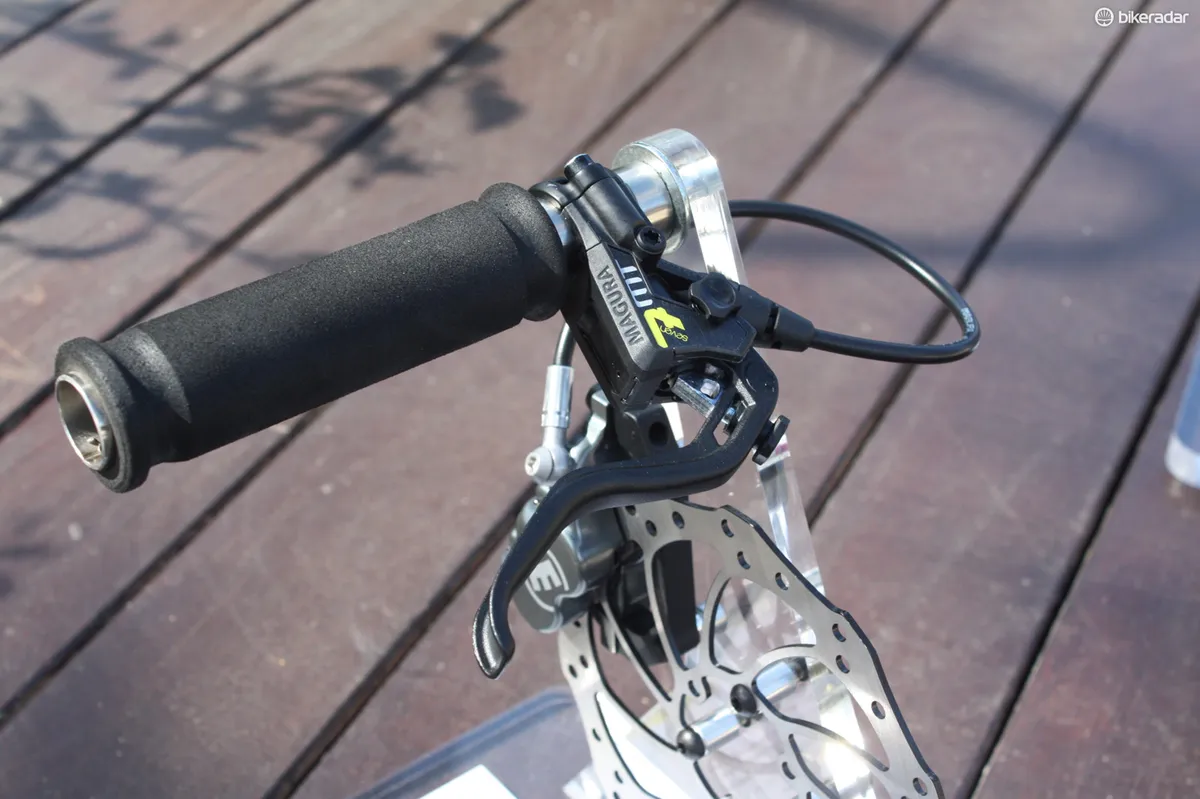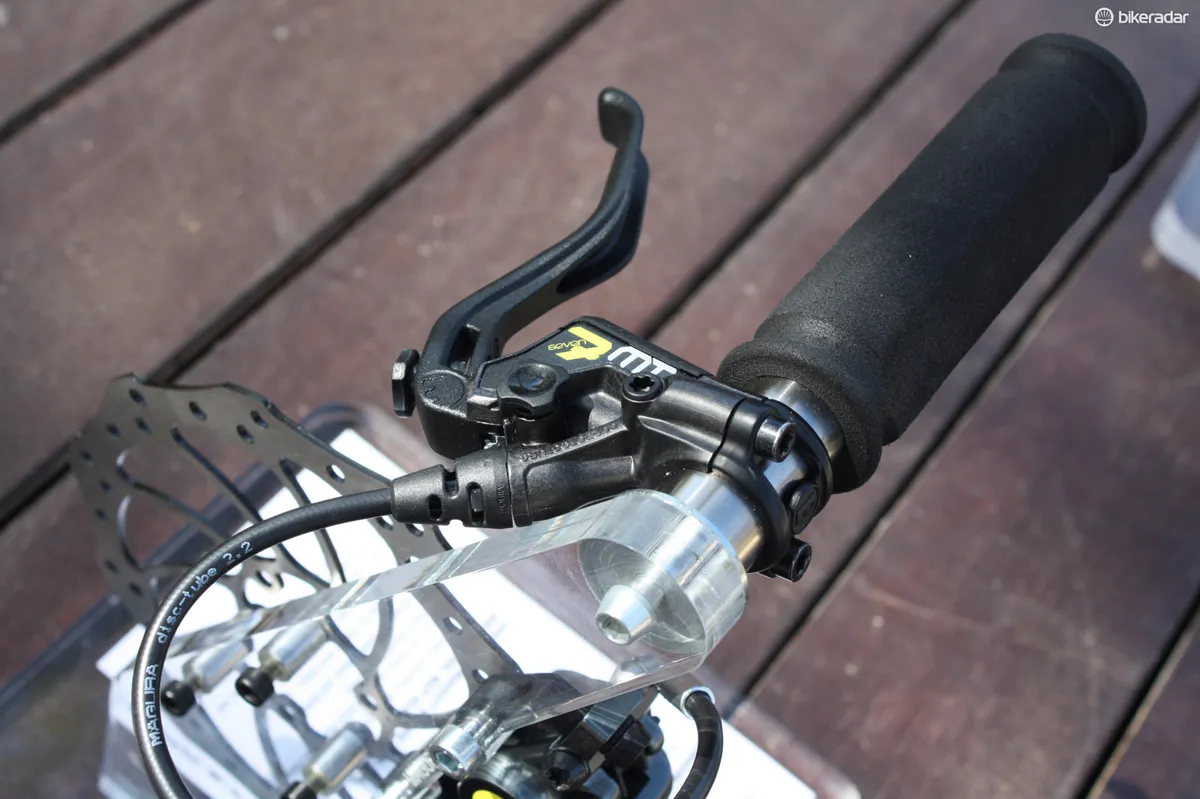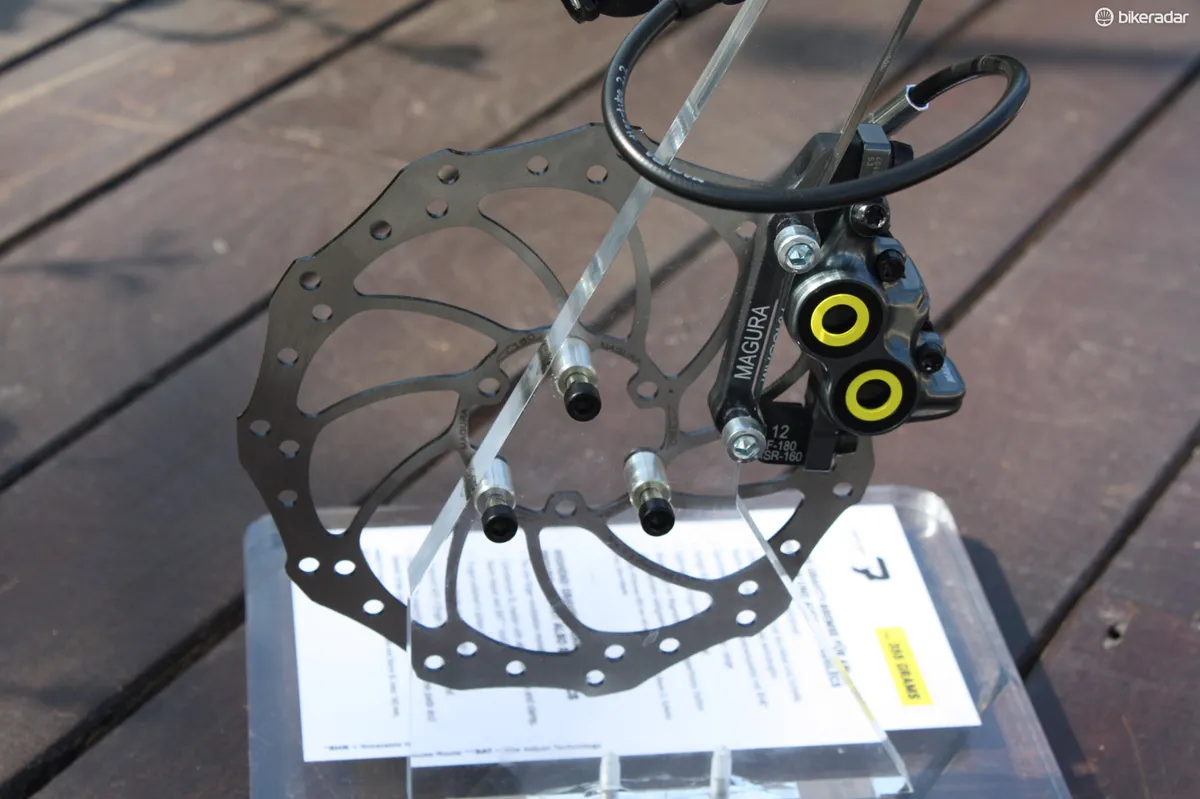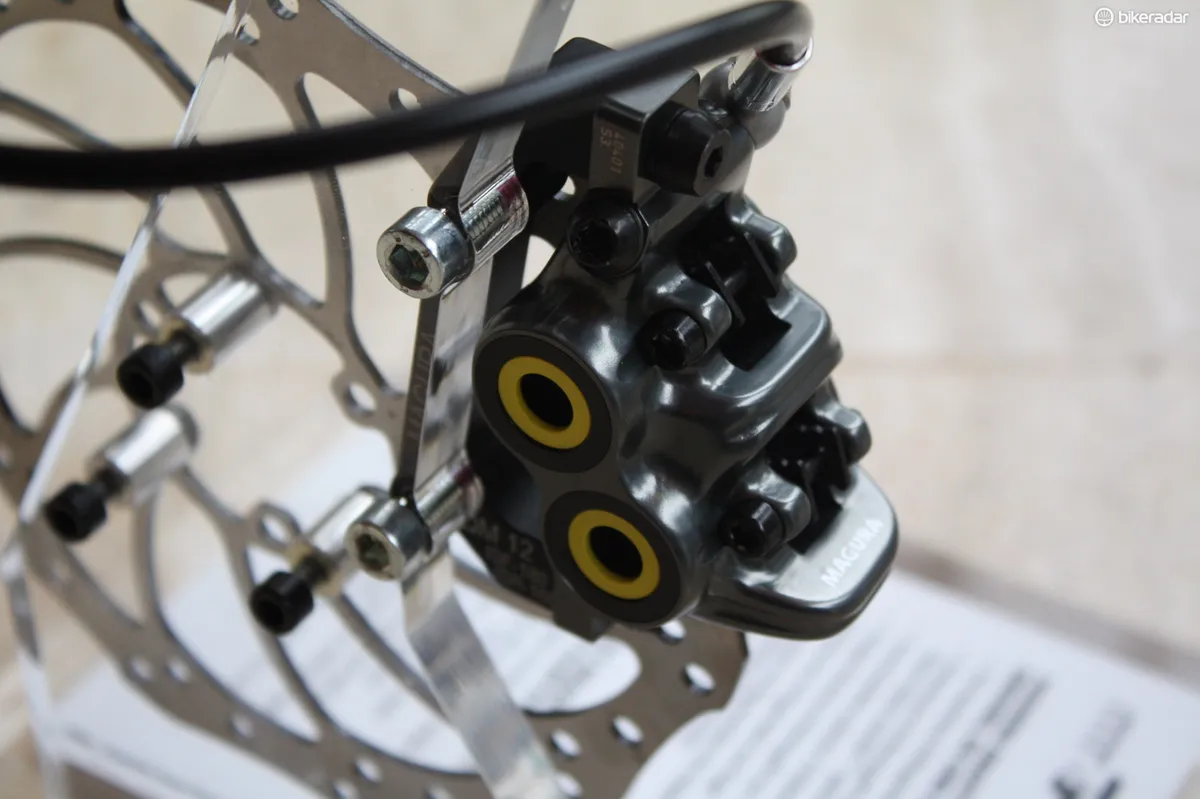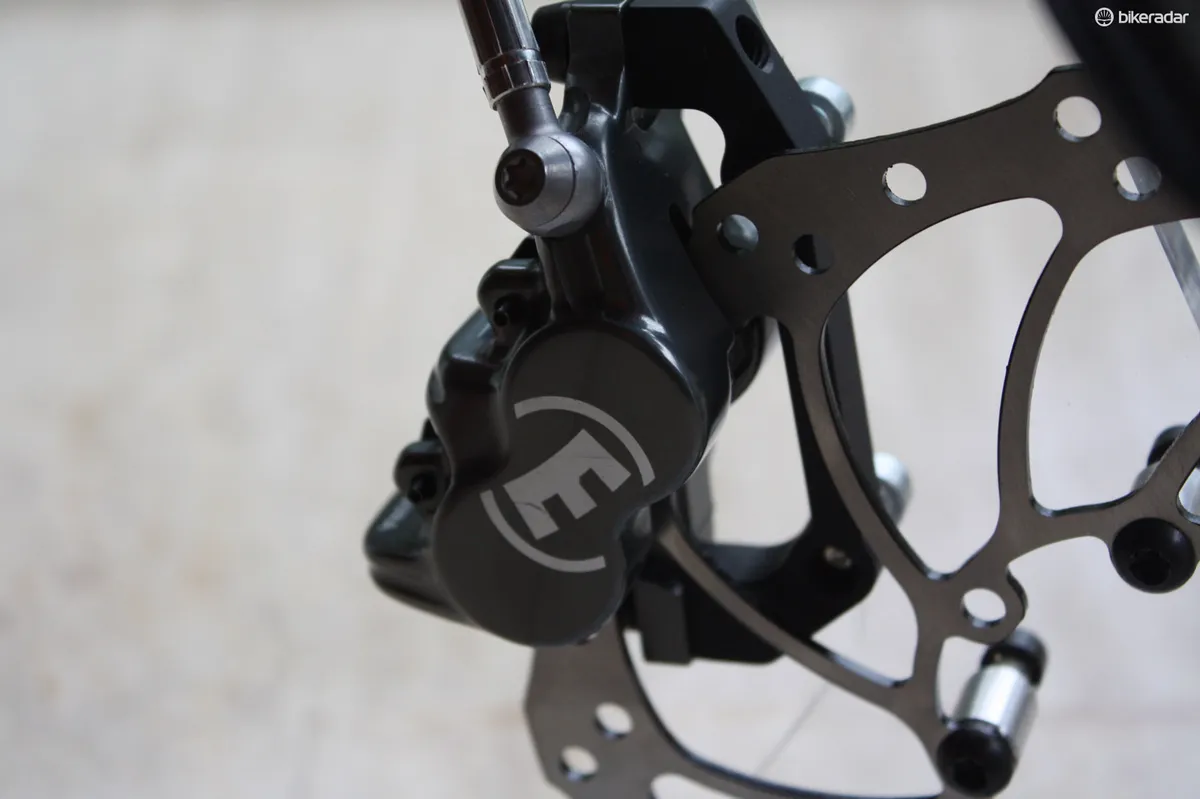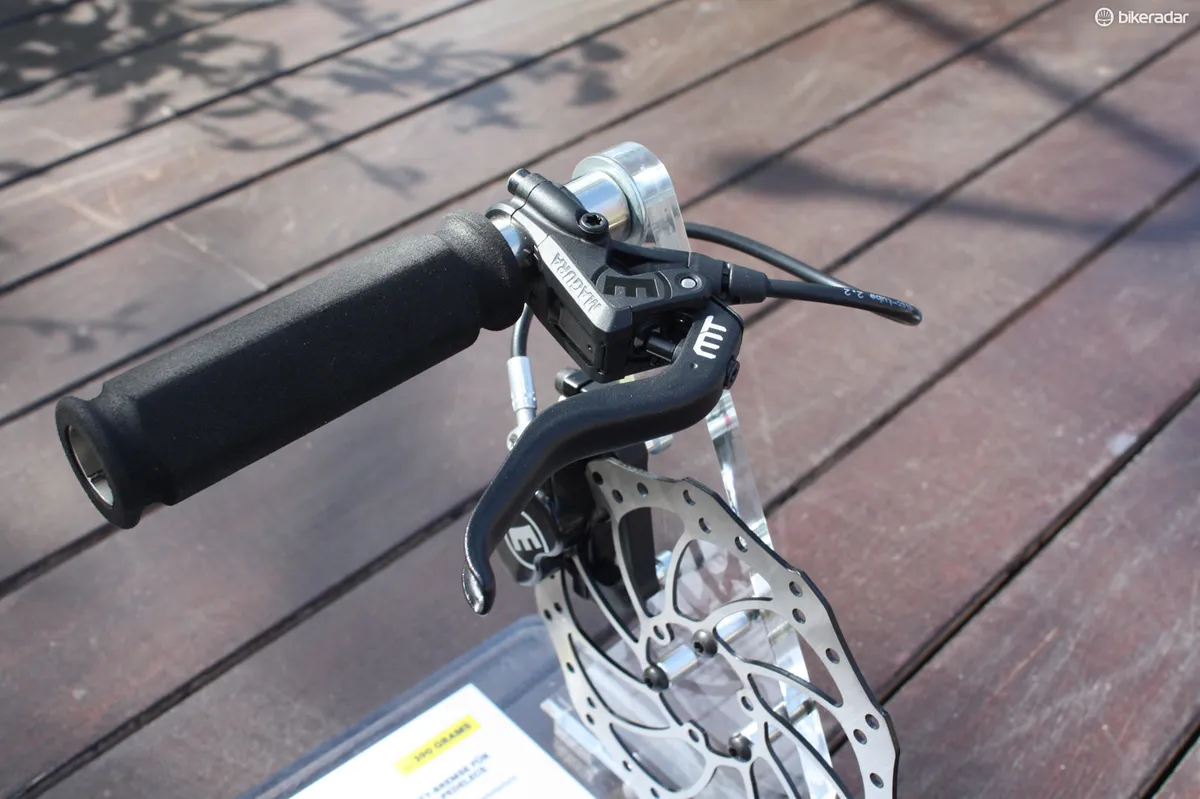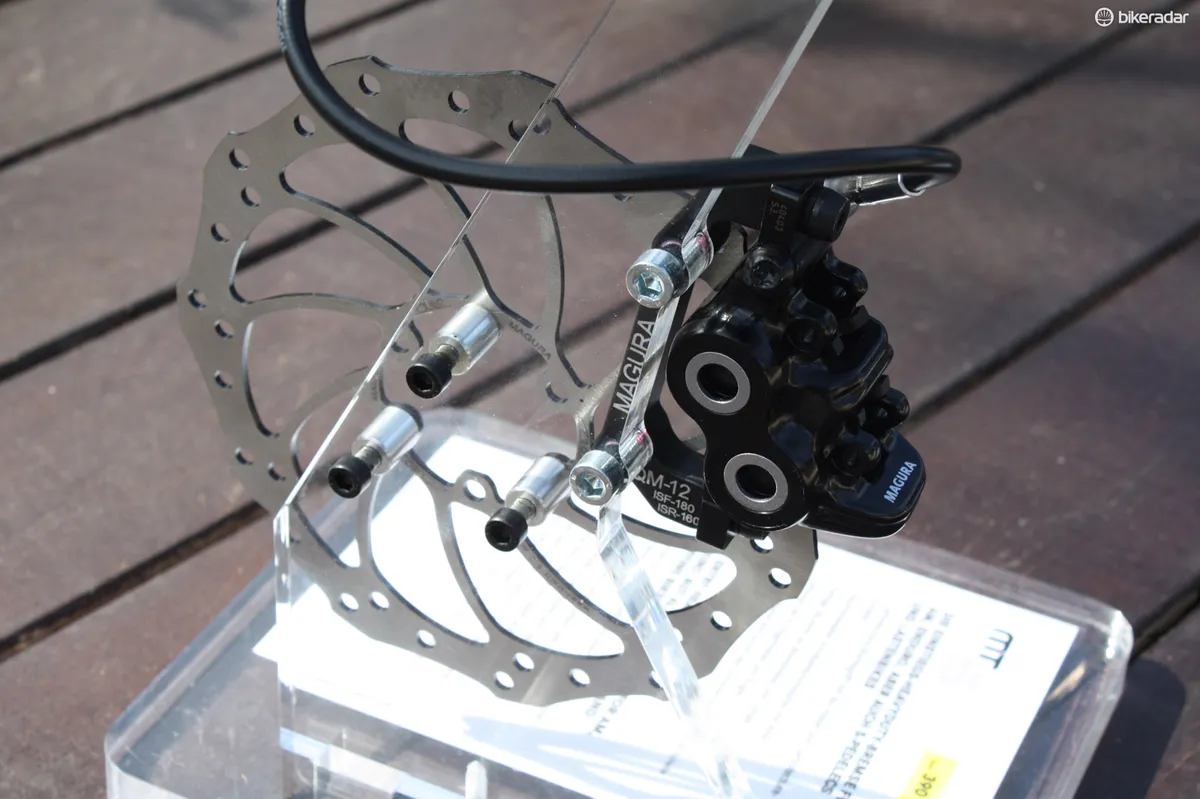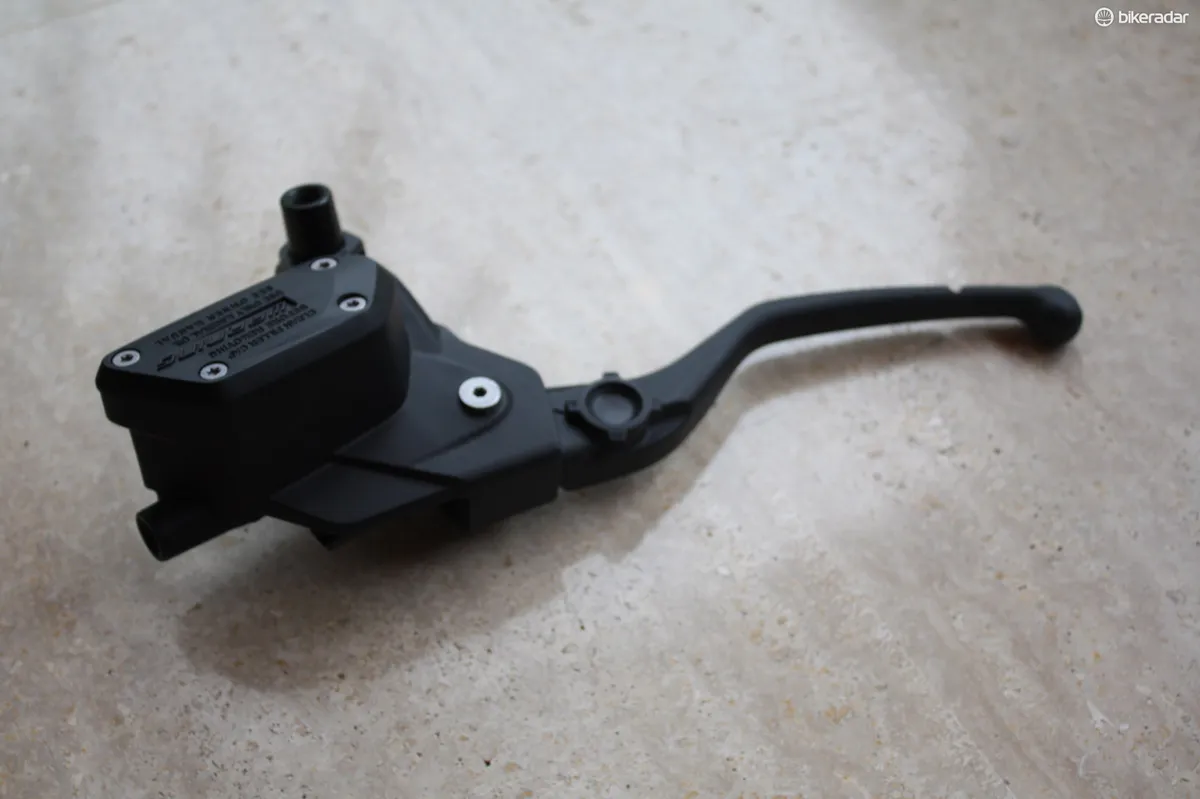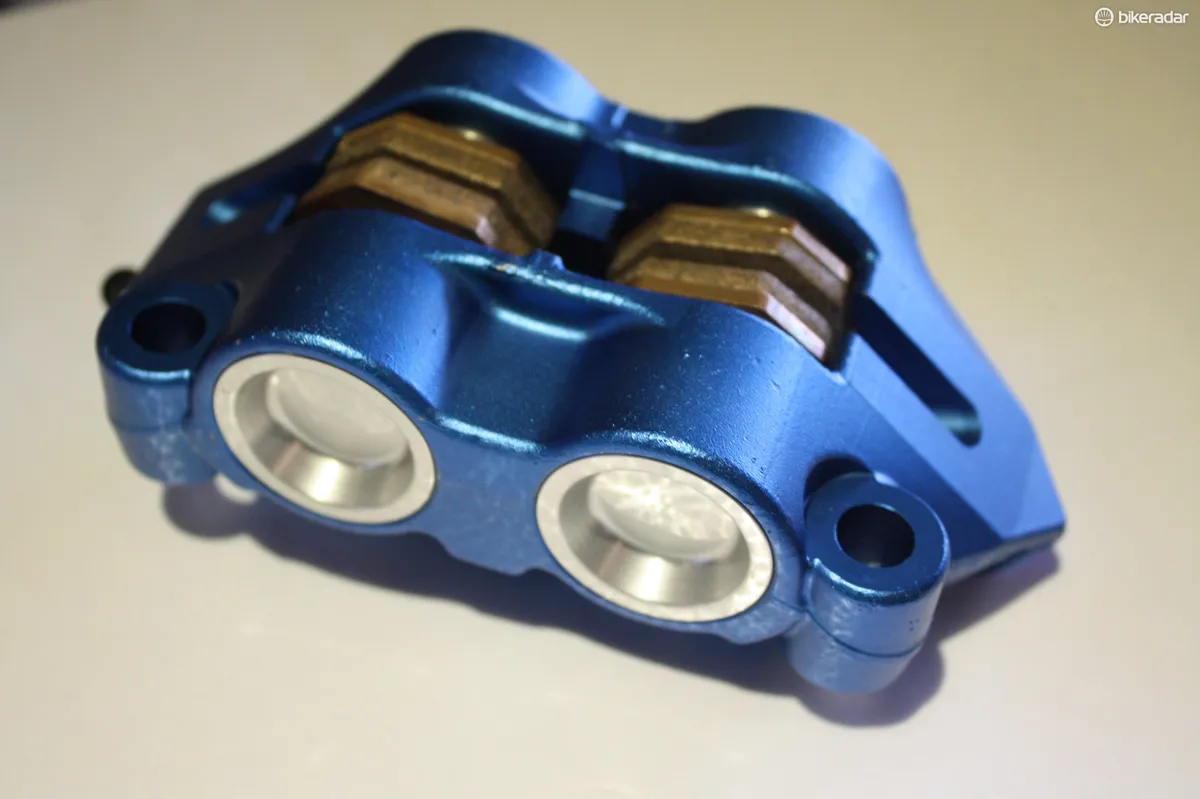German firm Magura has addressed the four-pot shaped gap in its hydraulic disc brake line-up with two new four-piston brakes. The MT5 and MT7 are the first four-pot models from the German firm since it retired its long-standing and popular Gustav M downhill brake.
Magura MT5
The MT5 is the cheapest way to get four-pot braking from Magura; it will retail for €149 per brake (UK/US pricing to be confirmed). For that you'll get a complete system including rotor and suitable adaptor.
The MT5's lever body is produced from Magura’s Carbotecture material – a composite that’s used in BMW motorcycle brake levers and even within gearboxes for Volkswagen cars. The levers themselves are a flip-flop design with a split clamp at the handlebar, while the alloy lever blades feature reach adjustment via countersunk T25 torx heads. The T25 torx is Magura’s tool of choice for its entire MT line of brakes, with every bolt head being this pattern.
The all new forged caliper of the MT5 houses two pairs of 17mm pistons alongside a sensibly placed bleed port and banjo fitting for the brake hose.
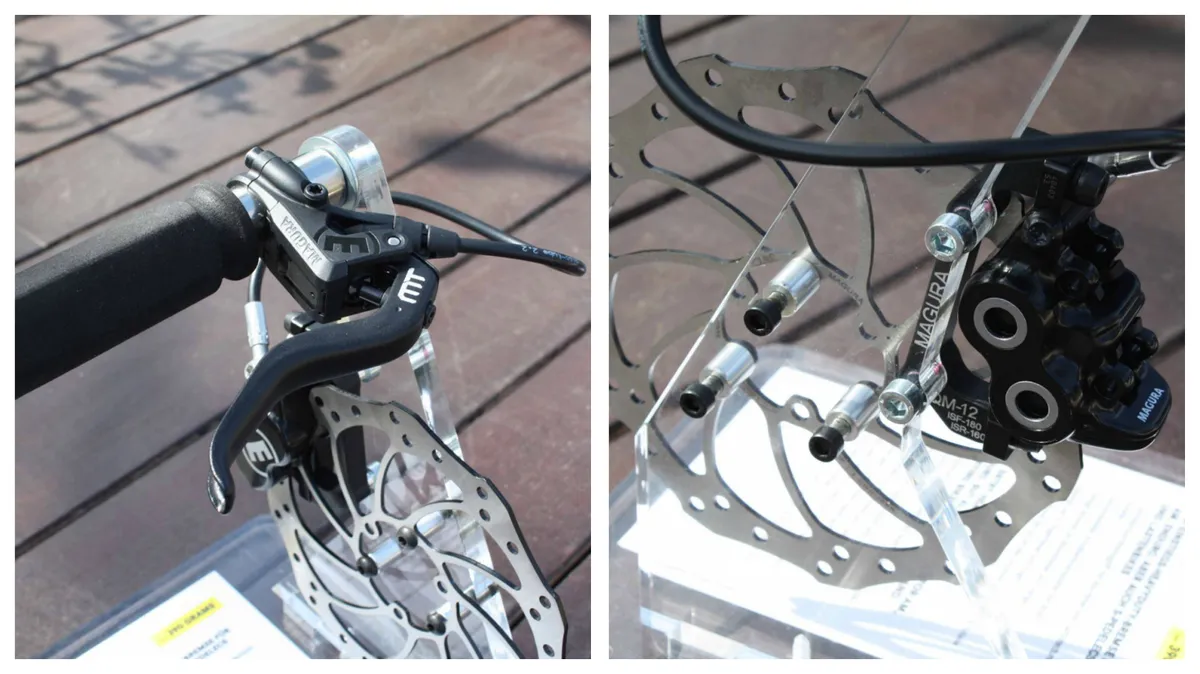
Each brake sold will also come packaged with a 2.2m hose rather than pre-cut front and rear options that most manufacturers offer. Claimed weight for a complete MT5 system exluding mounting hardware but including a 160mm rotor is 380g.
Magura MT7
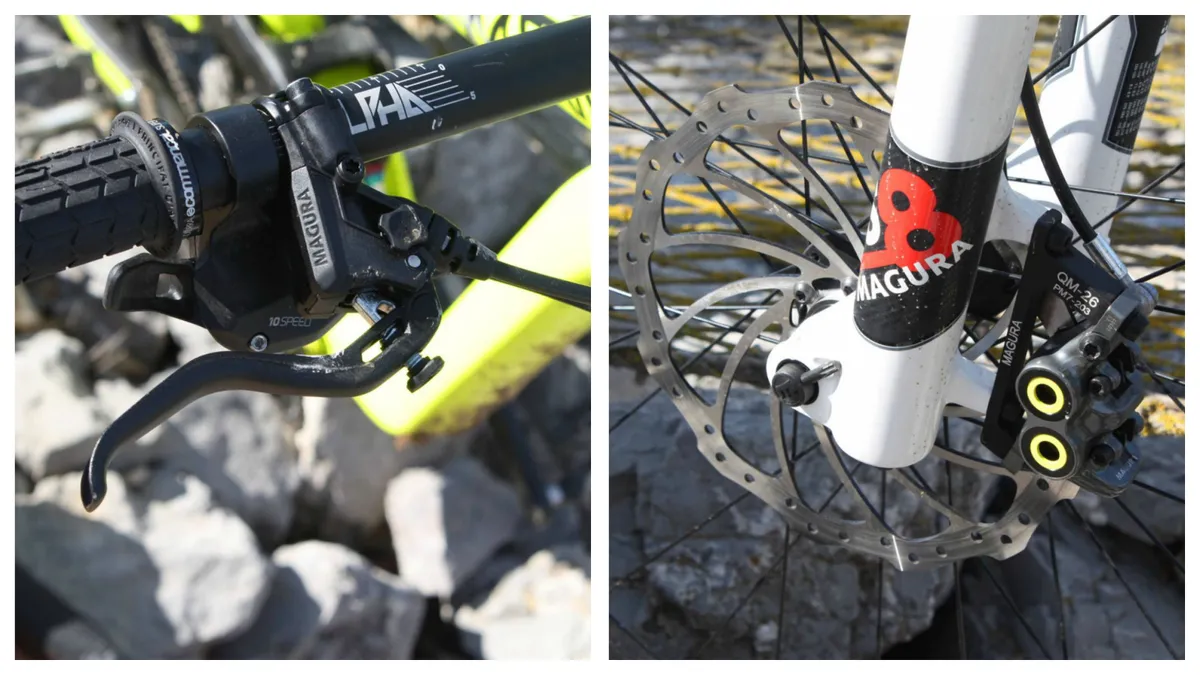
The top end four-pot is the MT7 and is set to retail for €259 per end. That’s a big hike over the MT5, so what’re the differences? Well, the brake body of the MT7 uses a super light version of Magura’s Carbotecture material, that and the use of alloy hardware at the brake pads helps to save a claimed 25g per brake.
Going back to those brake pads, the MT7 have different ones from the cheaper MT5 model. They’re actually separated into two parts each side with a small gap in the centre. The two-piece pad offers improved heat dissipation when compared with the MT5’s conventional design.
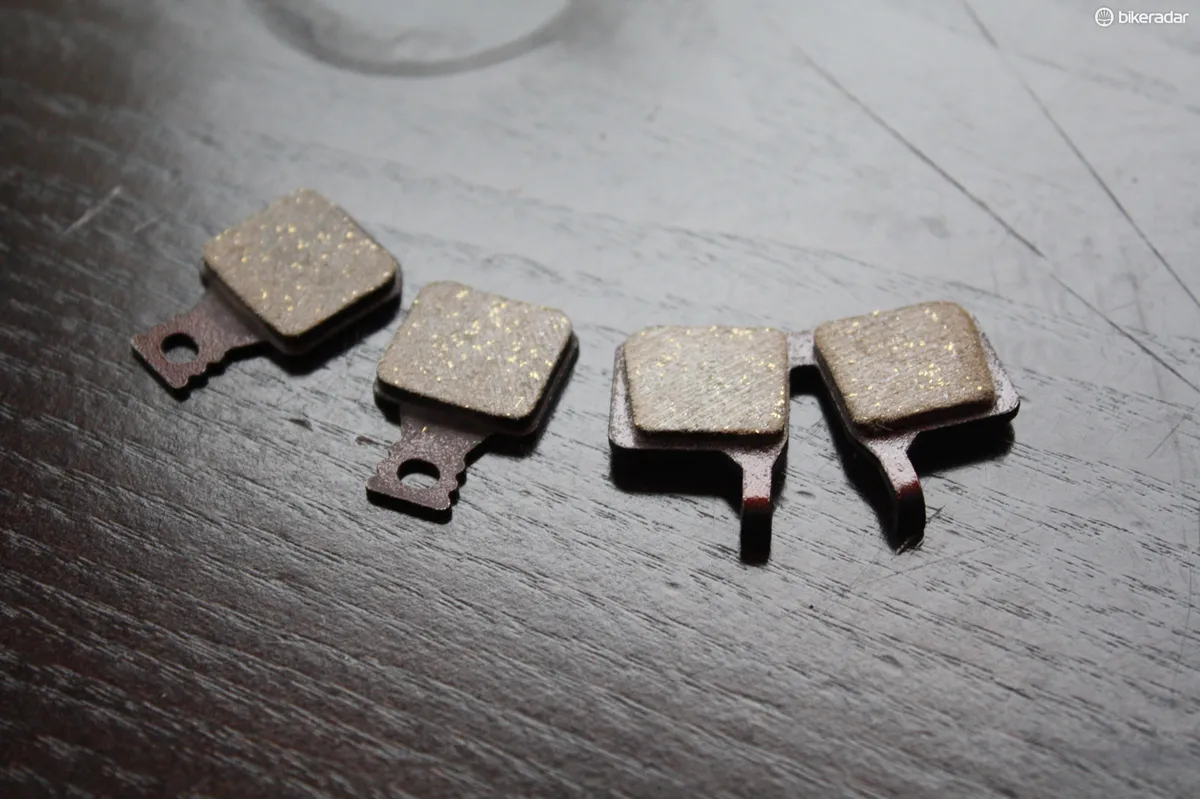
MT7 pads come in two pieces (l) while the MT5's pads are a conventional one piece design (r)
The MT7 also gets a tool-free bite point adjustment; this moves the piston of the brake to change the timing of the brake engagement. This adjustment allows for riders to dial in their brakes to feel identical front and rear and also to provide the same feel whether the levers are wound close or far away from the bar. Riders will also experience more power with the MT7 – that's down to a different mechanical ratio
The MT7 also uses an alloy lever, but one that is better finished than the MT5's. The reach adjustment is now a tool-free affair too. Both brakes also use mineral oil. The MT7 still has an alloy brake lever, but it’s a more nicely finished item compared to that of its cheaper sibling.
First ride with the Magura MT7
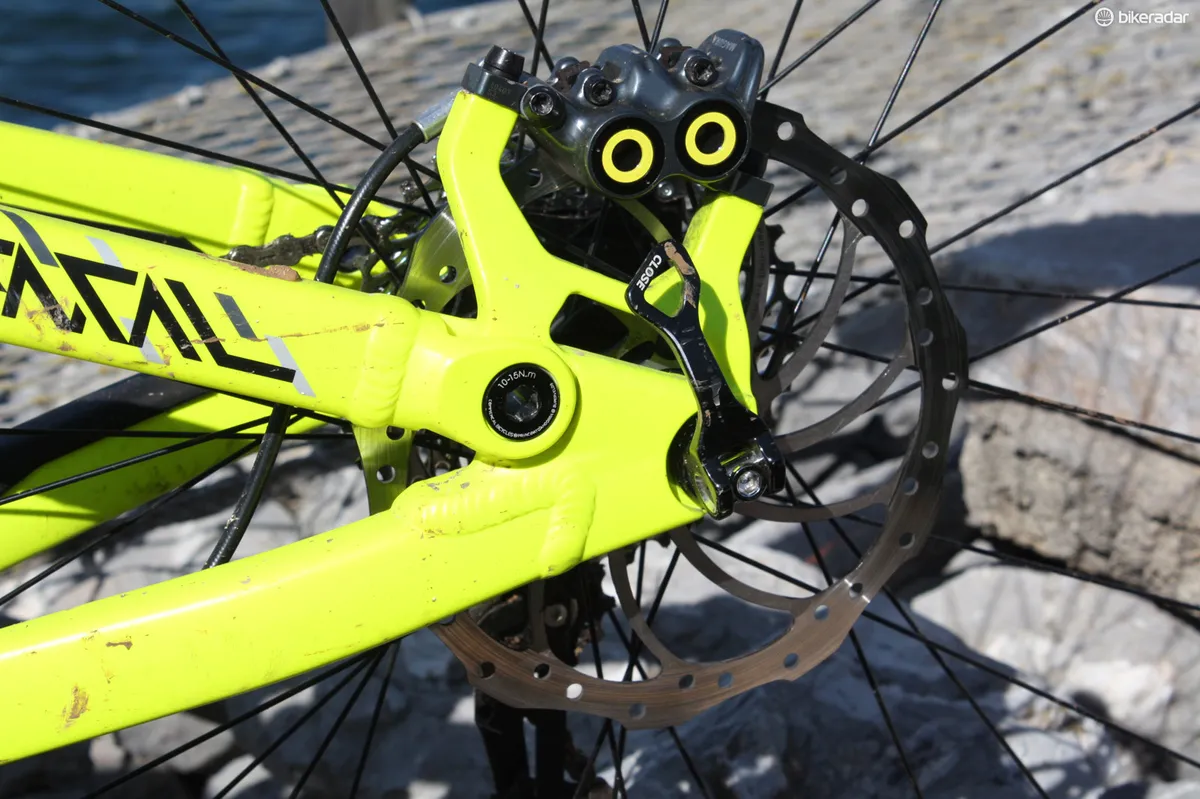
We sampled the new MT7 on a mixture of Majorca’s trails and overall we were very impressed; we have no negative feedback on these brakes at all. The lever immediately felt comfortable and provided a good level of adjustment for those with smaller hands – something that is often a criticism of radial lever designs such as these.
The MT7 always felt powerful yet is well modulated enough to not catch out anyone but perhaps the most ham-fisted of users. High-speed descending with continual heavy braking failed to show any problems with heat control.
The carbotecture material used in the lever bodies is both stiff and strong. The latter was confirmed after a low speed tumble meant the MT7 lever on our test bike met a rock, hard!
We only had the opportunity to test the brakes on bone dry trails so we can't yet comment on wet weather performance. We've secured a test set for a full review though, so stay tuned.
